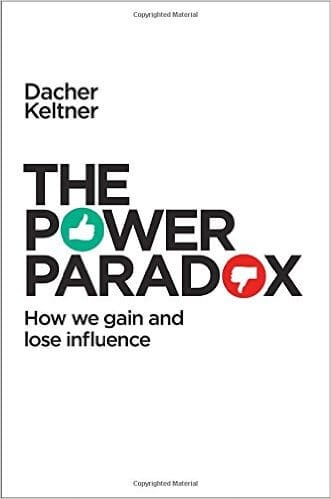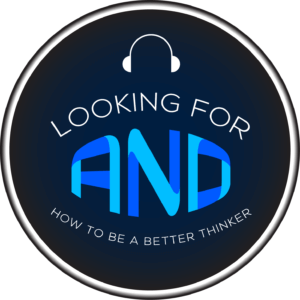Have you ever wondered how some people achieve power while others struggle to advance in politics or business? Once someone achieves power, how does she keep it? What leads someone with power to lose it? And, what will happen to President Trump?
Dacher Keltner, a professor of psychology at the University of California – Berkeley, has been studying power for a number of years and has some surprising answers to the questions above in his insightful, easy-to-read book The Power Paradox. Keltner is the author of over 190 scientific articles and was an advisor to the 2015 Pixar animated movie Inside Out where a young girl moves to a new town and has cope with multiple emotions. (I saw it my kids and it got 5 stars from us!) In addition, Keltner consults with Facebook and Google.
Before explaining the “paradox” that Keltner uncovered in his research, consider his definition of power: It is…“not only the  capacity to influence others; it is also a state of mind. The feeling of having power is a rush of expectancy, delight, and confidence, giving us a sense of agency and, ultimately, purpose.” And, with this definition are a host of additional “power principles” (20 to be exact) that he and his team of researchers identified. Consider a few…
capacity to influence others; it is also a state of mind. The feeling of having power is a rush of expectancy, delight, and confidence, giving us a sense of agency and, ultimately, purpose.” And, with this definition are a host of additional “power principles” (20 to be exact) that he and his team of researchers identified. Consider a few…
- Principle #5: Groups give power to those who advance the greater good.
- Principle #9: Enduring power comes from empathy.
- Principle #14: Power leads to incivility and disrespect.
- Principle #20: Powerlessness causes poor health.
So, the paradox is that we tend to rise in power with the good intentions of serving others but we fall from power as we become self-serving and demonstrating the worst in us. Obtaining power is also different (on average) than we may think. It is actually given to us rather than taken. As Principle 5 states, groups are more likely to reward those who advance their interests with status and esteem. Those who undermine the greater good are punished with gossip.
While consulting at Facebook, Keltner told me that when he attended meetings, he couldn’t tell who had the higher rank. But, he said it was easy to tell who was getting things done and who had “pull” within the group. In today’s ultra-collaborative workplace, working well with others is no longer a nice-to-have characteristic. Keltner told me that, “…social intelligence is critical for success. Our enduring contribution to the world depends on others.”
“Power tends to corrupt and absolute power corrupts absolutely,” Lord Acton
And, what happens when we rise to power? Unfortunately, the story is not so good…in fact, Lord Acton was onto something before Keltner and his team conducted their research. Power, it turns out, leads to some self-destructive behaviors, such as: eating impulsively, sexual affairs, stealing and being rude or profane. (Check out these Donald Trump insults.) This happens, in part, because power makes us feel less dependent on others. We begin to inflate our view of the value we bring to our group and our ability to empathize decreases.
And, before you think President Trump (and others in power) is the only one who suffers from this, think again. In one study at Berkeley, poor people showed more compassion when confronted with images of children suffering. In another study, those with more power, took the last cookie in the experiment and thought nothing of it. Finally, drivers of more expensive cars are four times less likely to stop for pedestrians in a crosswalk.
“We rise by lifting others,” Robert Ingersoll
The key to enduring power, it turns out, is a focus on others and their interests. (Keltner mentioned that Adam Grant’s work on “givers, takers and matchers” has been a big influence on him.) Political strategist Thurlow Weed once said of Abraham Lincoln, “He sees all who go there, hears all they have to say, talks freely with everybody, reads whatever is written to him.” Again, this is consistent with the work of David Marquet who stopped giving orders on a nuclear submarine as he was determined to give control to the crew.
A couple of interesting research tidbits:
- Teams with empathetic leaders do better at problem-solving.
- A team’s performance on a collective intelligence task increased if a woman was leading the team.
- Empathetic workers are judged as having better work product as assessed by their supervisors.
When asked what was the most unexpected thing he learned about power while conducting his research, Keltner responded, “The really surprising thing to me was how quickly and systematically it leads people to abuse it. Power is a privilege, yet people use it for their own advantage.”
So, what does this say about our new President? Well, he has only been in power for about seven weeks…then, again, he has only been in power for about seven weeks…



